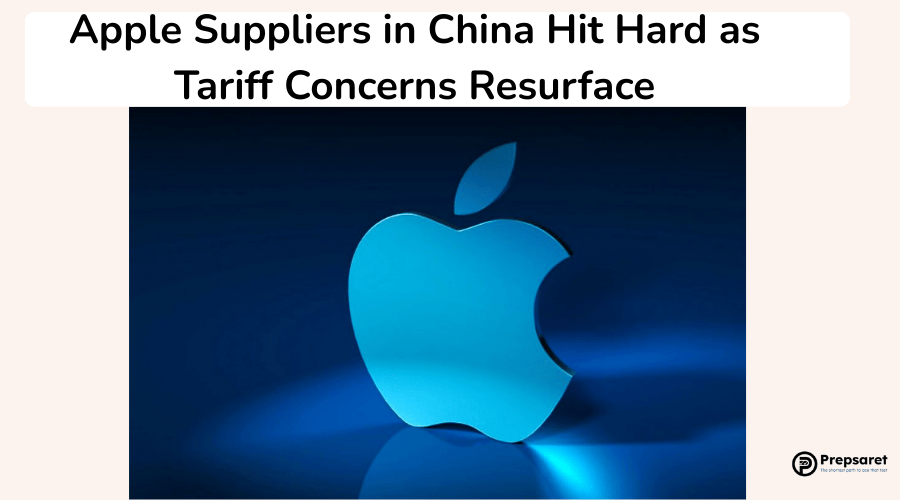Apple Suppliers in China Hit Hard as Tariff Concerns Resurface
Chinese companies closely associated with Apple experienced a dip in their stock values on Monday, following remarks by former U.S. President Donald Trump hinting at possible tariff hikes on imported iPhones.
Shares in Luxshare, a company involved in both iPhone assembly and AirPod production, dropped by 2.2%.
Lens Technology, a Chinese manufacturer of smartphone displays, also declined by 1.8%. Meanwhile, Goertek, another AirPod component supplier, saw its stock fall by 1.1%.
These losses followed Trump’s statements last Friday, where he warned that his administration might impose a 25% tariff on iPhones that are sold but not assembled in the U.S. He also floated the idea of doubling that rate to 50% by June 1.
His reasoning was to motivate American firms like Apple to bring manufacturing jobs back to the U.S. “as part of his administration’s goal of re-shoring jobs.”
Related story: Sony Projects Stagnant Profits as Tariff Costs Mount
Strategic Shift and Production Roadblocks
Earlier this year, Trump’s tariffs targeting nearly all foreign nations triggered financial turbulence, prompting a market sell-off that impacted U.S. bonds and the dollar.
While most of those aggressive tariffs were halted due to investor concerns, the administration kept a 10% tariff baseline and dialed back a massive 145% duty on Chinese goods to 30%.
To mitigate exposure to Chinese tariffs, Apple is pushing forward with its strategy to manufacture a majority of iPhones intended for the U.S. market in India by late 2026. However, completely shifting operations to the U.S. presents a different set of challenges.
Commerce Secretary Howard Lutnick addressed the topic in an interview with CBS, stating that production could come to the U.S. through automation: “millions and millions of human beings screwing in little, little screws to make iPhones” would come to the United States and be automated, creating employment for trades such as electricians and mechanics.
Yet, in a follow-up conversation with CNBC, Lutnick acknowledged a critical hurdle—Apple CEO Tim Cook had informed him that the necessary automation technology isn’t yet available, casting doubt on the near-term feasibility of fully domestic production.
Read next: FTC Probes Media Matters Over Alleged Collusion in X Advertiser Boycott

